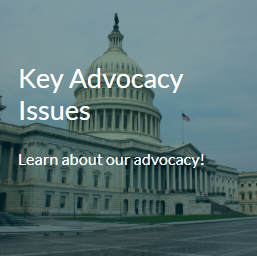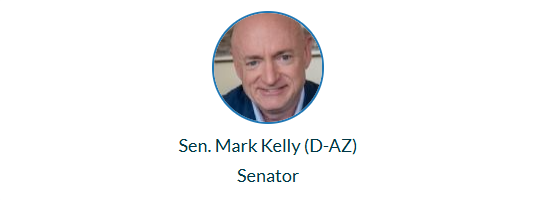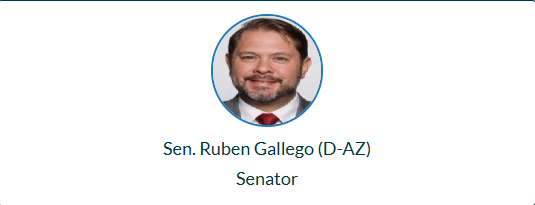Grassroots Advocacy Works.
The primary focus of the Coronado Chapter MOAA Legislative Affairs page is to help you:
- Provide information on specific issues that call for your advocacy action.
- Keep yourself updated on issues of importance to you.
- Identify and acquire contact information for your elected representatives.
- Provide direct letter campaign links to ease the burden of composing and writing effective communications with elected officials.
1. Provide Information
- The following links take you to the primary entry websites for the US Congress and for the Arizona Legislature. From these entry points you may research through all bills and resolutions that have been entered into the Congressional Record. Try it out. Enter “veteran” into the search block and begin exploring.
- Searching on US Congress link will allow you to search by key words, assigned Bill numbers, which Congressional body the bill is in, sponsor, and many other methods.
- Searching on the Arizona Legislature link will allow entry into a search site.
2. Stay informed on issues that are important to you.
- For decades, military senior leaders have encouraged reform of the wasteful acquisition process, and have warned that targeting personnel costs will have negative effects on retention and talent management. Yet pundits and some former Armed Services Committee members continue to make the case that personnel cost cuts must occur in order to preserve the size of the fighting force.
- Active duty servicemembers, and their families, are on the front lines fighting for our country to serve and protect whether they are stationed at home or abroad, and the challenges and sacrifices they face during their time in uniform are unique: deployment, PCS moves, food insecurity, educational and professional development, transitioning, and more. MOAA’s advocacy for the currently serving focuses on sustaining military pay comparability with the private sector, maintaining earned benefits, educating Congress of the importance of protecting and expanding benefits for those in service, and of avoiding incomplete data when rushing to cut costs.
- Housing remains a critical concern for those in uniform and their families, and it continues to be a key priority for MOAA’s advocacy efforts. Recent reporting from the Government Accountability Office (GAO) reveals the myriad challenges servicemembers in unaccompanied housing are facing. The health, safety, and privacy concerns outlined by GAO show the need for action.
- MOAA seeks to improve funding and condition transparency for unaccompanied housing by requiring an annual, publicly available report, which will highlight areas that require the most attention from both DoD and Congress.
- Veterans and transitioning servicemembers face unique challenges once they have left the military: second and non-military careers, reinventing themselves, retirement concerns, navigating veteran benefits and health care, and access to support programs and networks.
- In the last several years, Congress has enacted legislation that has monumentally impacted how the Department of Veterans’ Affairs (VA) delivers health care and benefits to beneficiaries and how they determine eligibility. VA faces several challenges as it attempts to sustain and balance its four primary health care missions (clinical, research, education and training, and emergency management response) while also meeting the expectations of veterans seeking access to high quality health care and benefits when and where they need it.
- MOAA will focus on advocating for veterans exposed to toxic materials during their service.
- While the Sergeant First Class Heath Robinson Honoring Our Promise to Address Comprehensive Toxics (PACT) Act has made major improvements to how toxic exposures are treated by the VA, additional measures are required. In cooperation with other VSOs, MOAA will advocate for Congress to pass legislation that shortens the time veterans must wait before their toxic exposures are acknowledged and conceded by the VA.
- Military families face a myriad of challenges: career instability or dissatisfaction, food insecurity, frequent moves, saving (or not saving) for college and retirement, extended training or deployments that separate the family, and even the servicemember-spouse transitioning out of active duty to service in the National Guard or Reserves.
- Programs and services for military and veteran families are often the first to see cuts when government funding becomes tight. Routinely, such decrements hit staffing, which diminishes quality and availability of programs. These benefits are essential to ensure servicemembers are squared away and able to focus on the mission.
- Rates of unemployment for military spouses continue to be four to five times higher than the national average. This persistent challenge requires not only providing education and employment resources for spouses, but also incentivizing businesses to hire someone who will likely move in two to three years.
- The Work Opportunity Tax Credit program was established to support populations who face significant barriers to employment, and adding a military spouse target group is long overdue. Passing the Military Spouse Hiring Act will provide another important lever needed to address the critical issue of spouse unemployment.
- MOAA has long advocated for legislation that would improve caregiving support for veterans’ families. This includes enhancements to the VA Program of Comprehensive Assistance for Family Caregivers (PCAFC) and expansion of home health and long-term care services to meet current and future needs of veterans, their caregivers, and families.
- For the 119th Congress, MOAA strongly supports the reintroduction and enactment of the Veteran Caregiver Reeducation, Reemployment, and Retirement Act. This legislation acknowledges caregivers’ invaluable contributions while addressing the significant economic and emotional burdens they face. By offering education, employment, and retirement opportunities, the legislation empowers caregivers to achieve financial security while potentially reducing the federal government’s long-term economic burden.
- DoD has acknowledged that congressionally directed reforms to the Military Health System (MHS), together with U.S. medical workforce volatility, exacerbated long-standing access challenges and led to a destabilized MHS that does not consistently deliver timely care to beneficiaries.
- Current patient resources for reporting access problems and getting assistance navigating the MHS are inadequate. Also, it is unclear if there are mechanisms for reporting up to the Defense Health Agency so systemic access challenges can be identified and addressed.
- MOAA seeks a digital MHS assistance platform allowing beneficiaries to report access-to-care challenges and receive help navigating the MHS, including reporting requirements to increase visibility on barriers to access so fixable issues can be addressed.
3. Identify Elected Representatives and Congressional Record Information
- The following links take you to the primary entry websites for the US Congress and for the Arizona Legislature. From these entry points you may research through all bills and resolutions that have been entered into the Congressional Record. Try it out. Enter “veteran” into the search block and begin exploring!
Searching on US Congress link will allow you to search by key words, assigned Bill numbers, which Congressional body the bill is in, sponsor, and many other methods.
Start typing
Searching on the Arizona Legislature link will allow entry into a search site.
Arizona State Legislature
District 19 Representatives
Lupe Diaz
Gail Griffin
Contact Information
Arizona State Senate
District 19 Senator
David Gowan
MOAA Advocacy Information and Links
MOAA Advocacy Center
Advocacy News
COLA Watch
Health Care Topics
Spouse and Family Issues
State Report Card for Veteran Issues
Reserve and Guard Advocacy Issues











